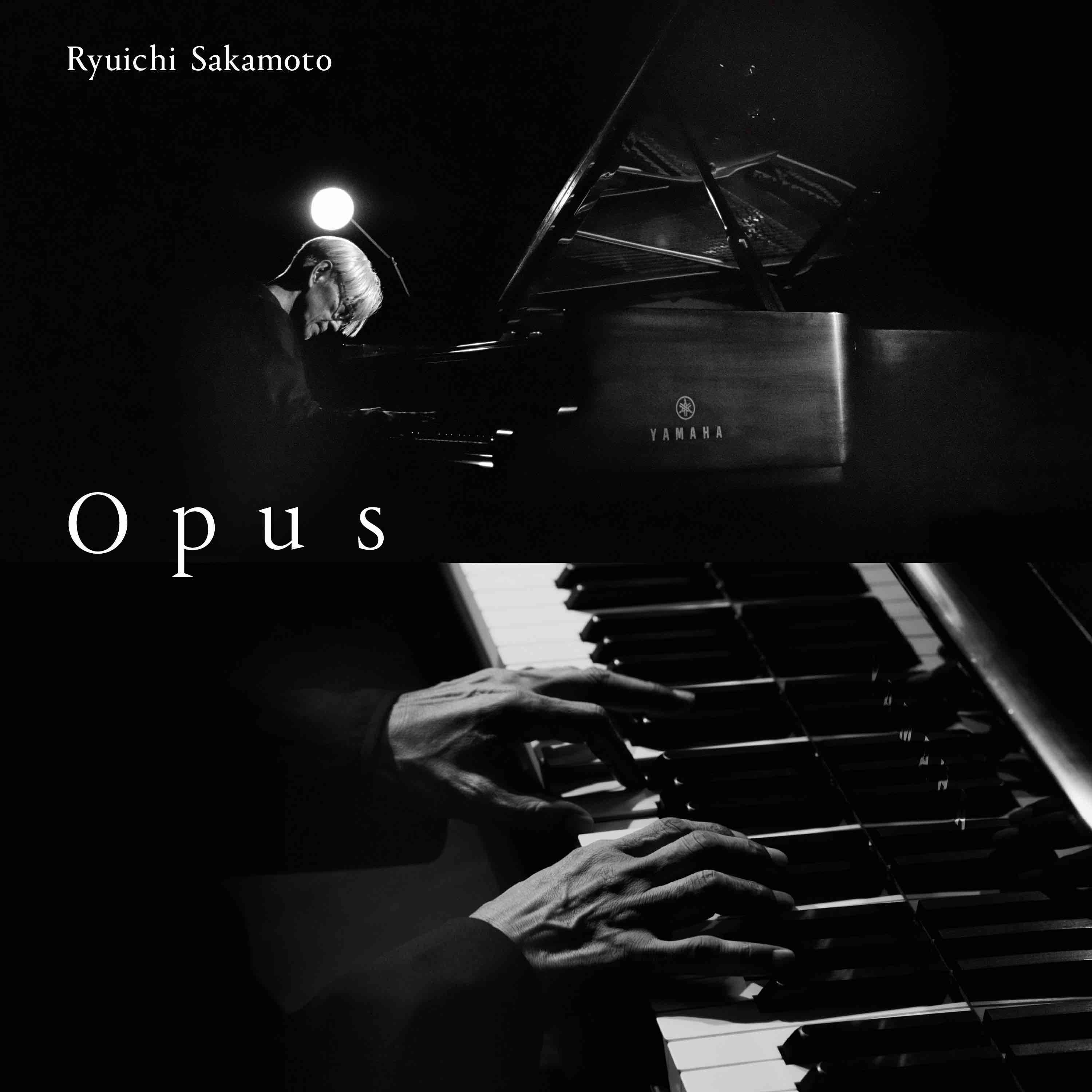Ryuichi Sakamoto
Opus
MILAN
Last June at The Shed in NYC, Kagami, a mixed-reality solo piano event starring a projection of the then-recently late Ryuichi Sakamoto, unfolded slowly in ghost-like fashion. To a circle of audience members sporting VR headsets, a lit-from-within Sakamoto—pensive and professorial—was beamed in from the beyond in what the New York Times noted was more like a séance than a concert filled with the rapturous, complex chords of the pianist’s patented brand of meditative, jazzy, modern-classical minimalism. There was a feeling of communal grief watching a reed-thin, digi-Sakamoto perform the most eerily poignant of his works from his time in Yellow Magic Orchestra, his solo pop catalog, and his collection of celebrated film scores. There was also a palpable sense of joy that was spread among the audience: getting that last, near-physical opportunity to be near a humble, heroic innovator whose intimately epic works all but define the musical notion of “elegy.”
The new, posthumously released Opus is yet another of Sakamoto’s final gifts to his devoted audience—a parting glance at his expansive, elegant body of work through his most familiar songs (and several new ones) played occasionally imperfectly, yet breathing vividly and provocatively in the moment. In this fashion, and knowing his death was imminent, Opus is the most live and alive that any recorded version of Sakamoto has ever been. You could call some of the live missteps in his icily precise songs an act of improvisation if you want—clearly, though, the ailing Sakamoto made an error here or there while recording Opus: an ever-so-slight blunder during “Bibo no Aozora” from 1996’s Smoochy, or the reset of “Andata” from 2017’s Async. This is how Sakamoto chose to emotionally connect most deeply with his art and his audience: in a manner displaying his aches, ills, and, ultimately, his triumphs of will over his physical struggle for as long as he could manage.
Film score classics such as his Oscar-winning “The Last Emperor” and “Merry Christmas Mr. Lawrence” loll, prance, and dance at Sakamoto’s hand. New original tracks such as “BB” and “For Jóhann” (respectively dedicated to the memories of Last Emperor director Bernardo Bertolucci and the composer Jóhann Johannson) are wellsprings of deeply felt emotion and delicate passion (another new song, “20180219,” is far more discordant and messy than the rest of Opus—a nice reminder of Sakamoto’s excursions into avant-garde classicism). As expected, it’s his contemplative stripping-down of peppy pop songs such as YMO’s “Tong Poo” and his electro-dance “Happy End” that are most thrilling and filled with humorous delight. Anyone who remembers the bounce and cheer of those pre-21st century tracks will welcome hearing both recordings at their most sparse and thoughtful.
Overall, that’s what Opus is all about: claiming and reclaiming Sakamoto’s past and his then-present for a spirited postscript—a haunting for the future whose ghosts we’ll always welcome.







